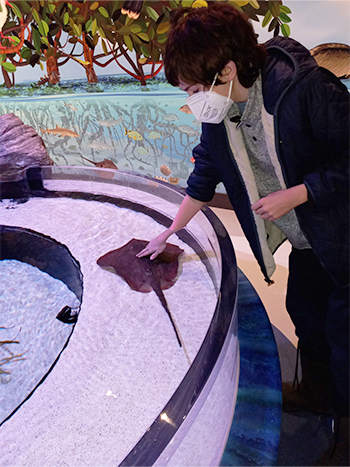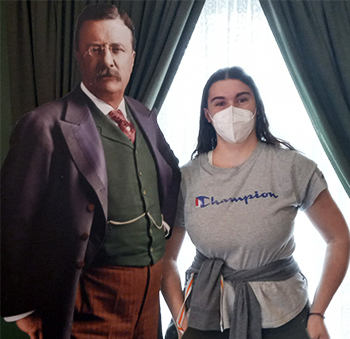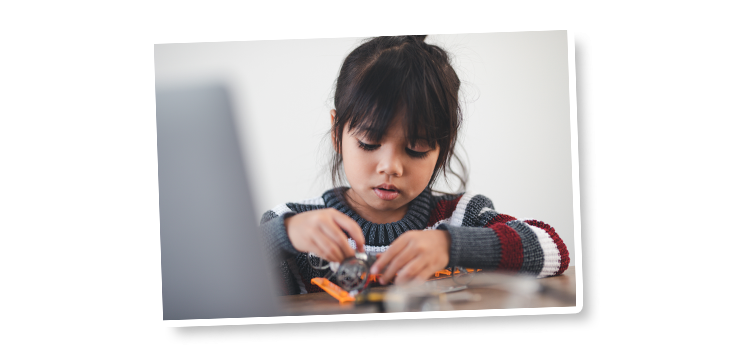The topic of homeschooling evokes many opinions, ranging from the very positive (i.e., “I wish I could homeschool my children…”) to the very negative (i.e., “Children need to be in school…””). Unfortunately, many naysayers view homeschooling as quasi-schooling where education is not taken seriously and students sit around in their sweatpants doing subpar work. What is the truth? Do homeschoolers really fall behind? Let’s explore this question through the experience of a family with two students who did homeschooling for one year and then returned to traditional schooling.
Ready for Homeschooling?
At the start of the pandemic in 2020, students all over the country transitioned to remote learning at their brick-and-mortar schools. Amy, a single mother from New York, observed her children, Naomi and Tyler, learning in this new way, and she began to question the value of her children’s private school education. When, during the 2021-2022 school year, the school no longer offered remote learning, Amy was not ready to send her children back to school in person. Like many accidental homeschoolers, she found that homeschooling had suddenly become a viable option. Amy chose to homeschool Naomi for her eighth-grade year and Tyler for his sixth-grade year.

As a single working mother, Amy was concerned about fulfilling all the homeschooling requirements in NY, and she was worried that her children wouldn’t learn enough—that they would fall behind. Despite these concerns, she felt that homeschooling was the best way to keep her children safe while still providing a quality education. While Amy did find time management to be a bit challenging between work and home responsibilities and the time necessary for specials and field trips and the state-required paperwork, reflecting on it now, she says, “Homeschooling was a lot nicer than I expected. I thought it would be overwhelming. It was doable.” Amy laughs about her own teaching qualifications. She recalls that she did recess when her children were in elementary school, but she was never a teacher. “Now,” she muses, “I have one year of experience.”
To balance her own work schedule with the educational needs of her children, Amy took advantage of Time4Learning’s flexible online platform. To give her children ownership of their learning, she had them determine their own schedules based on the hours and tasks per subject they needed to complete for the week. They conquered most of their assigned Time4Learning math, science, social studies, and ELA while she was working Tuesday through Thursday. Social studies field trips and some gym activities were reserved for Mondays and Fridays when Amy didn’t have to work. She used evenings and weekends to review their work with them and engage in enrichment opportunities . They did French through Time4Languages and added a couple interest-based courses as electives (now Time4Learning has its own middle school and high school electives!).
Ready for Public School?
The following year, Amy felt that the timing was right–considering both social and pandemic-related factors–to have her children return to in-person schooling and, also, to transfer to public school. Naomi was entering high school, and Tyler was entering middle school, so their peers would be transitioning to new buildings as well, and they wouldn’t be the only new students.
Reflecting on the experience as a whole, Amy noticed benefits from that one year of homeschooling. She says, “Once they got started, they knew what to do.” They often worked independently—on the honor system. Amy admits, “It taught them something—they took responsibility for their own education. They learned to make their own individual schedules to fit their own individual styles.” She laughs that Tyler’s day started a little later, and he took a two-hour lunch, but he worked a bit later and got it all done. Amy also credits Time4Learning with preparing them to work from home when they are sick. They go onto Google Classroom, get their assignments, and complete them so that they don’t return to a lot of makeup work. Amy boasts that Tyler is now in advanced math and science and was invited to join Junior National Honor Society, and Naomi is on the high honor roll.

What did Tyler think about going to middle school after homeschooling for a year? He says, “I felt prepared…. I didn’t miss anything with Time4learning.” He feels that homeschooling was a “good basis” for what he is learning this year. Tyler admits, “I feel like it was better than school. I actually learned a lot of stuff. It seems like the stuff we were learning in Time4Learning, we are still learning now (in April). I am ahead of everyone.”
The academic transition to high school was easier than Naomi had envisioned, too. Naomi says, “I was a little nervous. I hadn’t been in school for three years. When they began teaching, I realized that I knew most of it from Time4Learning. I was ahead, which was kind of nice.” She notes that she had already covered many of the topics in science and ELA, and she credits Time4Learning’s vocabulary-building exercises in her achievement of a college-level score on the school’s ELA assessments. Naomi also describes a class science game in which she knew many of the answers. She says, “Students asked, ‘How did you know all that? What school did you go to?’ I said I was homeschooled. They were surprised.”

While both children had similar experiences with homeschooling and afterward, this family’s story also exemplifies the uniqueness of individual children. Naomi liked the flexibility of homeschooling (i.e., wakeup times and dress code) and how there “wasn’t a set time to do anything.” She says, “It was easier for me than regular school, but I also feel like I learned a lot.” If she had her choice, she would have continued homeschooling. Tyler, on the other hand, liked not going anywhere after waking up, and he found that the learning was “shorter, but more dense.” He says that regular school is “more broken up,” but he has made friends and would prefer to continue in public school.
The truth is, that while every child is different, homeschoolers do not fall behind because of homeschooling. In fact, the National Home Education Research Institute demonstrates that “78% of peer-reviewed studies on academic achievement show homeschool students perform statistically significantly better than those in institutional schools (Ray, 2017).” In addition, “87% of peer reviewed studies on social, emotional, and psychological development (Ray, 2017)” show similar trends. The bottom line is that homeschoolers do not fall behind. In fact, homeschoolers can and do perform better!






